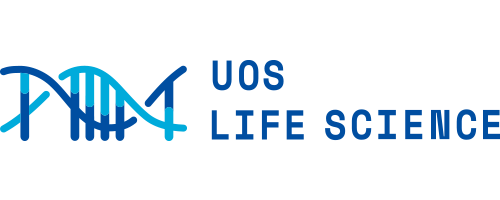Research introduction
[Protein quality control in the brain during aging and neurodegeneration]
The cell biology laboratory aims to understand the maintenance and disruption of neuronal integrity, as well as the occurrence of neuronal loss during aging.
With expertise in working with mouse models and primary cells derived from them, we conduct research with the following keywords: (1) neurodegenerative diseases, (2) reactive astrogliosis, (3) ubiquitin-proteasome system, and (4) autophagy-lysosome pathway.
The primary objective of our laboratory is to develop a novel therapeutic strategy to overcome neurodegenerative diseases by regulating the cellular quality control system.
(1) Our first aim is to establish a model for enhanced neuronal viability or neuroprotection. We plan to achieve this by regulating the levels of secreted neurotoxic proteins, such as lipocalin-2 (LCN2), and by altering transcriptome profiles or modulating activation status in reactive astrocytes.
(2) Our second goal is to understand the molecular mechanisms through which glial cells, particularly astrocytes, interact with neurons and influence neuronal integrity.
(3) Lastly, we aim to apply our therapeutic strategy to animal models with neurodegenerative diseases and validate its neuroprotective effect in vivo.
The cell biology laboratory aims to understand the maintenance and disruption of neuronal integrity, as well as the occurrence of neuronal loss during aging.
With expertise in working with mouse models and primary cells derived from them, we conduct research with the following keywords: (1) neurodegenerative diseases, (2) reactive astrogliosis, (3) ubiquitin-proteasome system, and (4) autophagy-lysosome pathway.
The primary objective of our laboratory is to develop a novel therapeutic strategy to overcome neurodegenerative diseases by regulating the cellular quality control system.
(1) Our first aim is to establish a model for enhanced neuronal viability or neuroprotection. We plan to achieve this by regulating the levels of secreted neurotoxic proteins, such as lipocalin-2 (LCN2), and by altering transcriptome profiles or modulating activation status in reactive astrocytes.
(2) Our second goal is to understand the molecular mechanisms through which glial cells, particularly astrocytes, interact with neurons and influence neuronal integrity.
(3) Lastly, we aim to apply our therapeutic strategy to animal models with neurodegenerative diseases and validate its neuroprotective effect in vivo.
Education
- 2001 The Ohio State University, Ph.D. in Biochemistry (Ohio State Biochemistry Program)
- 1994 Seoul National University, M.S. in Chemistry (Biochemistry Major)
- 1992 Seoul National University, B.S. in Chemistry
Career
- 2017.09 - current: University of Seoul, Department of Life Science, Proferrsor
- 2012.09 - 2017.08: University of Seoul, Department of Life Science, Associate Proferrsor
- 2008.09 – 2012.08: University of Seoul, Department of Life Science, Assistant Proferrsor
- 2005.10 - 2008.08 Department of Biological Sciences, Stanford University Research Associate
- 2001.10 - 2005.09 Department of Biological Sciences, Stanford University Post-doctoral Research Fellow
Papers
- [2023.08] B. K. Jung, Y. Park, B. Yoon, J. S. Bae, S. W. Han, J. E. Heo , D. E. Kim*, K. Y. Ryu*, Reduced secretion of LCN2 (lipocalin 2) from reactive astrocytes through autophagic and proteasomal regulation alleviates inflammatory stress and neuronal damage. Autophagy, 19(8), 2296–2317, 2023.
- [2022.10] S. W. Han, K. Y. Ryu, Increased clearance of non-biodegradable polystyrene nanoplastics by exocytosis through inhibition of retrograde intracellular transport. Journal of Hazardous Materials, 439, 129576, 2022.
- [2021.07] B. Han*, B. K. Jung*, S. H. Park, K. J. Song, M. A. Anwar, K. Y. Ryu#, K. P. Kim#, Polyubiquitin gene Ubb is required for upregulation of Piwi protein level during mouse testis development. Cell Death Discovery, 7, 194, 2021.



